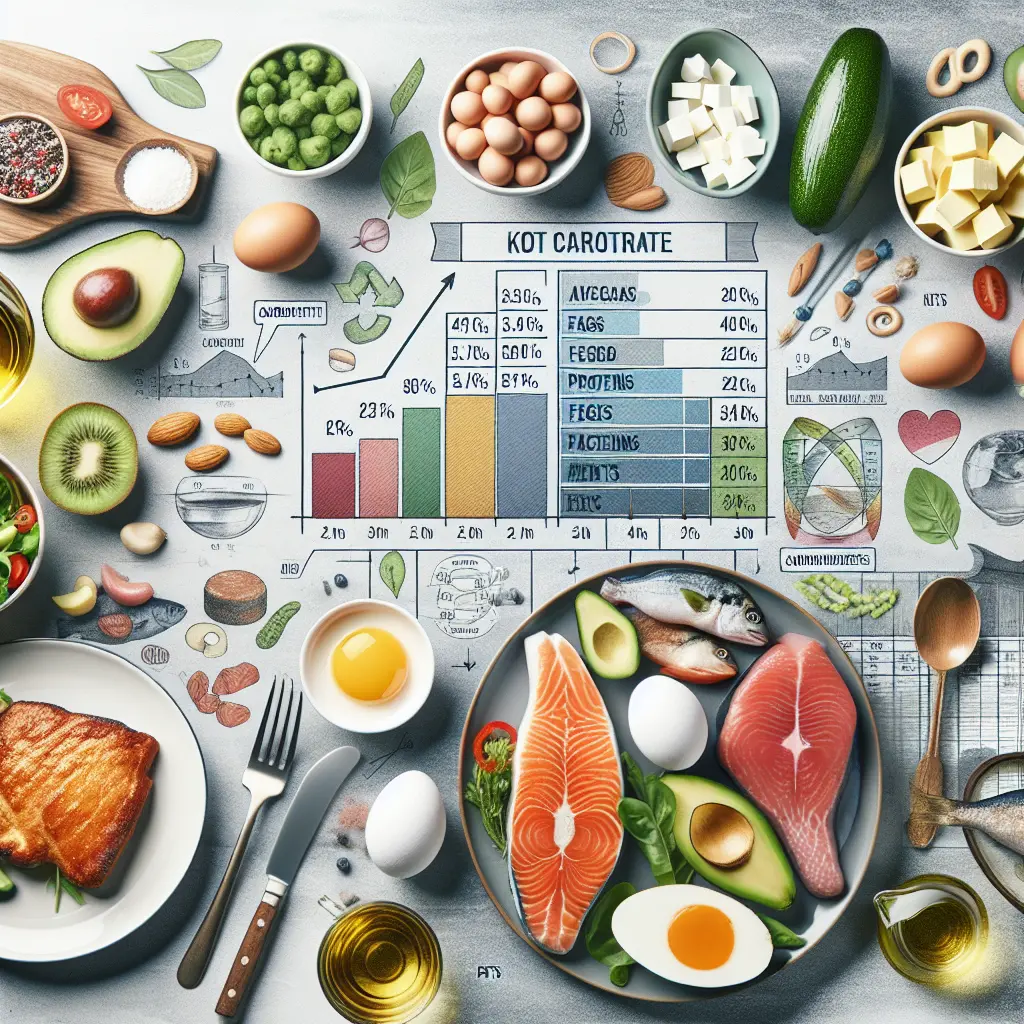
As the keto diet continues to sweep through the health and wellness landscape, ensuring optimal nutrient intake is paramount. This high-fat, low-carbohydrate diet shifts your body into a state of ketosis, where fat is burned for fuel instead of carbs. However, while the benefits are plentiful, potential pitfalls such as nutrient deficiencies must be navigated carefully. In this comprehensive guide, we’ll explore how to optimize nutrient intake on a keto diet, ensuring you receive a balanced spectrum of keto vitamins and minerals.
Understanding Keto Diet Nutrients
The ketogenic diet restricts carbohydrate intake to typically below 50 grams per day, which drastically alters your usual sources of various essential nutrients. This makes understanding and managing electrolytes and micronutrients crucial. Electrolytes such as sodium, potassium, and magnesium can often become depleted on a keto diet due to reduced carbohydrate intake and its diuretic effect (1). Ensuring these are replenished is key to avoiding symptoms like fatigue, headaches, and muscle cramps.
Essential Nutrients in the Ketogenic Diet
The essential nutrients required in a ketogenic diet aren't fundamentally different from a standard diet but focusing on certain keto-friendly foods can help in optimizing nutrient intake. Foods rich in omega-3 fatty acids like salmon and mackerel, leafy greens such as spinach and kale for iron and vitamins A and C, and nuts and seeds for magnesium, are vital (2).
Tackling Keto Nutrient Deficiencies
A common challenge when following a ketogenic diet is ensuring adequate intake of certain vitamins and minerals traditionally sourced from fruits and grains. These include B vitamins, vitamin C, and certain trace minerals. Incorporating nutrient-dense, low-carb vegetables, and fortified foods can help mitigate this issue (3). Additionally, being mindful of signs of deficiencies such as hair loss, fatigue, or prolonged muscle soreness is important for timely adjustments to your diet.
Best Foods for Keto Nutrients
To maintain a balanced nutrition profile on keto, include a variety of the following:
- Avocados are not only rich in healthy fats but also packed with potassium.
- Nuts and seeds like almonds and chia seeds offer magnesium and selenium.
- Eggs provide a complete source of protein along with vitamin D and choline.
- Dairy products like cheese and Greek yogurt are good for calcium and protein (4).
Keto Diet Dietary Supplements
Sometimes, even the best-planned diets may fall short in providing all necessary nutrients. This is where supplements come into play. Common supplements to consider include magnesium, omega-3 fatty acids, vitamin D, and specific B vitamins. However, it's advisable to consult with a healthcare provider before starting any supplement regimen (5).
Managing Electrolytes on the Keto Diet
The drastic reduction in carb intake on a keto diet can lead to a significant loss of electrolytes. Sodium, potassium, and magnesium need to be actively managed through both diet and supplementation. A balanced intake can help prevent the “keto flu,” characterized by symptoms like brain fog and irritability (6).
Incorporating Recent Innovations
Interestingly, technology offers novel ways to enhance physical performance and recovery, which can be beneficial for those on a keto diet. The recent introduction of $5,000 exoskeleton pants by Roam Robotics promises enhanced hiking capabilities by reducing strain on leg muscles and boosting endurance (7). While this technology is primarily aimed at hikers, it underscores the importance of physical support mechanisms which can be particularly beneficial when adapting to a nutrient-modified diet like keto.
Practical Tips
- Hydration: Increased water intake is crucial on a keto diet to help manage electrolytes and prevent constipation.
- Regular Monitoring: Keeping track of your nutrient intake through food diaries or apps can help identify potential gaps in nutrition.
- Diet Variation: Regularly rotating through different keto-friendly foods can prevent micronutrient deficiencies.
Conclusion
Optimizing nutrient intake while on a keto diet involves careful planning and consideration of food choices to ensure all essential nutrients are adequately covered. Addressing electrolyte management and potential supplementation are key steps towards maintaining health and well-being on this unique dietary path.
Navigating a keto diet doesn't have to be daunting. With the right knowledge and tools, you can enjoy the profound benefits while maintaining balanced nutrition. Always remember, each individual’s needs can vary significantly – listening to your body is paramount.
Stay healthy, Anna Westbrook
References:
- Volek, J., & Phinney, S. (2011). The Art and Science of Low Carbohydrate Living.
- Masood, W., & Uppaluri, K.R. (2020). Ketogenic Diet. In StatPearls [Internet]. StatPearls Publishing.
- Merra, G., et al. (2017). Very-low-calorie ketogenic diet with aminoacid supplement versus the conventional ketogenic diet in obesity medicine. Journal of Clinical Endocrinology & Metabolism.
- Paoli, A., et al. (2013). Beyond weight loss: a review of the therapeutic uses of very-low-carbohydrate (ketogenic) diets. European Journal of Clinical Nutrition.
- Kosinski, C., & Jornayvaz, F.R. (2017). Effects of ketogenic diets on cardiovascular risk factors: evidence from animal and human studies. Nutrients.
- Phinney, S.D., et al. (1983). The human metabolic response to chronic ketosis without caloric restriction: preservation of submaximal exercise capability with reduced carbohydrate oxidation. Metabolism.
- Roam Robotics (2023). Enhance Your Outdoor Activities With Exoskeleton Technology [Press release].